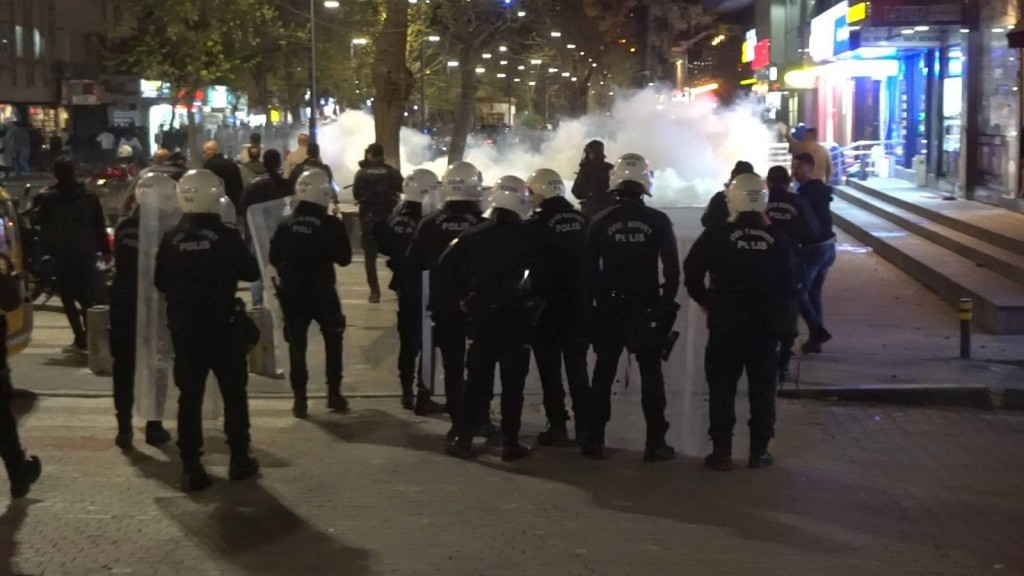A coalition of 10 international press freedom and journalism organizations has intervened at the European Court of Human Rights (ECtHR) in support of a case brought by İdris Sayılğan, a Turkish-Kurdish journalist jailed since 2016 on baseless anti-terror charges. The intervention focuses on the crucial question of domestic remedy, which has significant implications for the ECtHR’s handling of cases from Turkey.
Sayılğan worked for the now-shuttered pro-Kurdish Dicle news agency (DİHA) before his arrest on October 7, 2016. Authorities did not inform him of the charge – membership in an armed terrorist organization – until an indictment was produced nine months later. Typical of Turkey’s ongoing crackdown on the media, prosecutors’ evidence consists solely of Sayılğan’s journalistic work, indicating a politically driven effort to silence criticism.
His detention and trial have been marked by major violations of the right to a fair trial, described in documents filed by Sayılğan’s lawyers before the court. These violations include interference with Sayılğan’s right to legal counsel, denying him the right to appear personally in court, and preventing defence lawyers from calling witnesses. Sayılğan’s appeal to Turkey’s Constitutional Court, filed in July 2018, has gone unanswered. In January 2019, Sayılğan was sentenced to eight years and three months in prison.
The coalition’s intervention argues that the ECtHR should not require applicants from Turkey, such as Sayılğan, to first exhaust all “domestic remedies” – proceeding through all stages of the national-level appeals process – before applying to the Court. This argument is based on evidence that Turkey’s justice system, including the Constitutional Court, no longer offers an effective remedy. Judicial independence has been compromised and courts are unable to address cases in a fair, timely and consistent manner. The ECtHR’s current insistence on domestic remedy in Turkey largely prevents journalists and others from obtaining any meaningful redress to fundamental rights violations suffered.
“İdris Sayılğan’s case is but one of hundreds of examples of arbitrary detention and prosecution of Turkey’s journalists and the abject failure of a judicial system cowed by the political forces unleashed in 2016 to silence criticism”, IPI Turkey Programme Manager Oliver Money-Kyrle said. “The European Court of Human Rights can offer a first step towards justice by recognizing the absence of domestic remedy and accepting to take up Sayılğan’s case.”
A total of 130 journalists are behind bars in Turkey, of which most are the victims of a wide-ranging crackdown on critics of the government of President Recep Tayyip Erdoğan set in motion following the July 2016 coup attempt and the subsequent enaction of a State of Emergency. Anti-terror laws have been Turkey’s main tool of choice to prosecute the press, though journalists have been frequently held for extended periods without official charges. Indictments invariably rely on journalists’ professional work, including articles, social media posts and conversations with sources. Trials are marked by violations of basic rights of defence.
Sayılğan is represented before the ECtHR by the Media Legal Defence Initiative (MLDI) and the Turkey-based Media and Law Studies Association (MLSA). The application argues violations of Article 5 (liberty and security), 6 (fair trial), 10 (freedom of expression), 13 (effective remedy) and 18 (limitation on rights).
The intervention was submitted by the International Press Institute (IPI) on Friday, October 18 on behalf of a coalition of leading press and freedom of expression organizations including Article 19, the Association of European Journalists (AEJ), the Committee to Protect Journalists (CPJ), the European Centre for Press and Media Freedom (ECPMF), English PEN, the European Federation of Journalists (EFJ), Index on Censorship, the International Federation of Journalists (IFJ), IPI and PEN International. The intervention was drafted with the help of international law firm Freshfields Bruckhaus Deringer.



